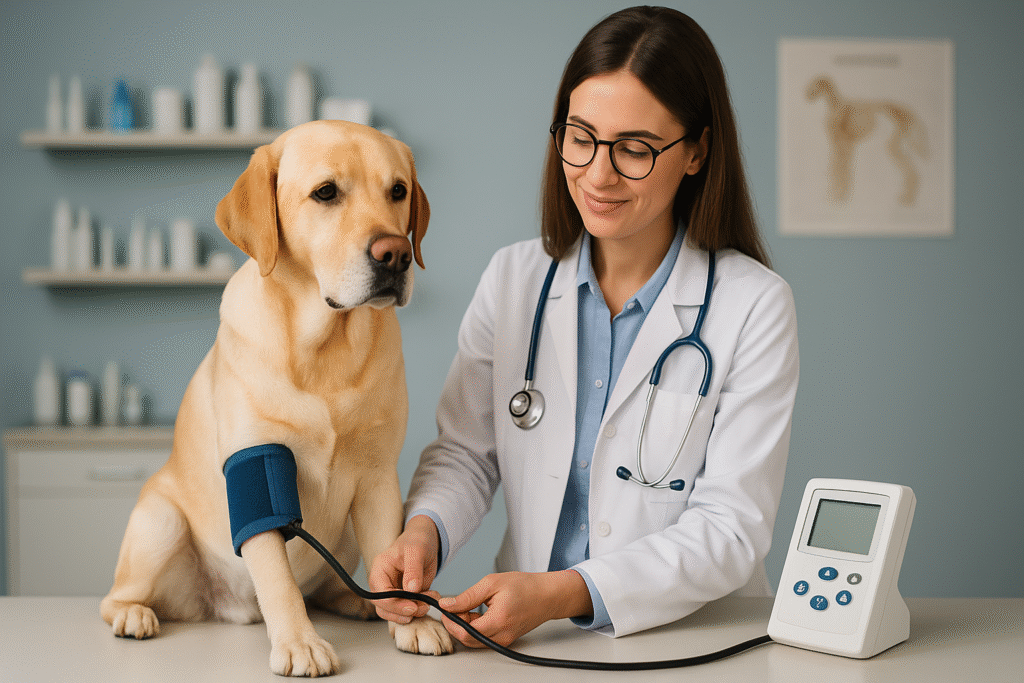🐶 What Every Pet Parent Needs to Know
Hypertension (high blood pressure) and cardiac diseases in dogs are more common than most pet owners realize. While many associate these conditions with aging humans, our canine companions are not immune. With early diagnosis and proper care, dogs with heart and blood pressure issues can live long, comfortable lives.
🩺 What Is Canine Hypertension?
Canine hypertension is a condition where your dog’s blood pressure remains consistently higher than normal. Just like in humans, it can cause serious complications if left untreated—affecting the brain, kidneys, eyes, and most importantly, the heart.
There are two main types:
-
Primary (Essential) Hypertension: Rare in dogs; has no known cause.
-
Secondary Hypertension: More common; typically caused by an underlying disease such as kidney failure, diabetes, Cushing’s disease, or heart conditions.
❤️ Common Cardiac Conditions in DogsHeart conditions in dogs include:
|
 |
🚩 Signs You Shouldn’t Ignore
Many dogs show subtle symptoms in the early stages. Here’s what to watch for:
-
Fatigue or reluctance to exercise
-
Coughing, especially at night or after activity
-
Rapid or labored breathing
-
Nosebleeds or vision problems
-
Disorientation or seizures (can indicate brain effects from hypertension)
🔬 Diagnosing the Problem
Veterinarians use a combination of:
-
Blood pressure monitoring (non-invasive, cuff-based devices)
-
Echocardiograms and chest X-rays to visualize heart size and function
-
ECG for arrhythmias
-
Blood tests to check for organ function and secondary causes
Recent advancements in veterinary care, such as cardiac ablation surgery, are opening new doors for treatment—even for severe arrhythmias.
💊 Treatment Options
Management focuses on:
-
Medications like ACE inhibitors (e.g., Enalapril), beta-blockers, or calcium channel blockers for blood pressure control
-
Diuretics for fluid removal in CHF
-
Low-sodium diets to reduce heart strain
-
Weight management and gentle, regular exercise
-
Treating underlying conditions (kidney disease, endocrine disorders)
Your vet will tailor treatment based on breed, age, and specific diagnosis.
🧠 Prevention and Monitoring
Routine vet checkups are crucial, especially for:
-
Senior dogs
-
Breeds prone to heart disease (e.g., Boxers, Dobermans, Cavalier King Charles Spaniels)
-
Dogs with pre-existing conditions
Invest in at-home monitoring tools and follow medication routines closely. Regular bloodwork and follow-ups help avoid complications.
🐕 Final Thoughts
Your dog can’t tell you when something feels off—but you can spot the signs. With growing awareness and access to specialized care, canine hypertension and cardiac diseases are no longer silent killers. Early detection saves lives.



